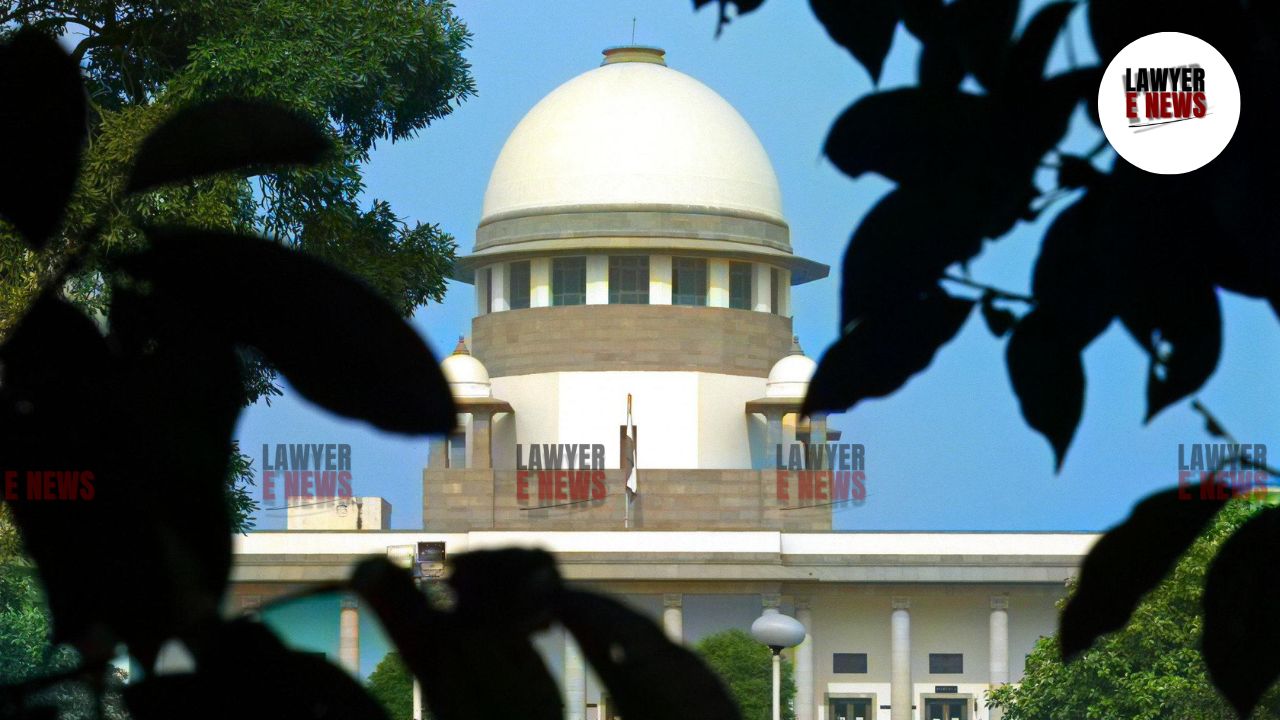-
by Admin
16 February 2026 5:45 AM



Supreme Court Rejects High Court’s 40% Disability Assessment, Holds 80% Functional Impairment for Amputee Labourer. In a significant ruling enhancing compensation for accident victims, the Supreme Court of India on February 7, 2025, set aside the Madhya Pradesh High Court’s compensation award of ₹6.61 lakh and increased it to ₹20.55 lakh for a labourer who lost his right hand in a motor accident. The Court held that the loss of a dominant hand for a manual labourer is not a mere 40% disability but an 80% functional impairment, warranting higher compensation under the Motor Vehicles Act, 1988.
A Bench of Justice Sanjay Karol and Justice Prashant Kumar Mishra observed, “For a daily wage labourer, the loss of a right hand is not just a physical injury but a near-total loss of livelihood. The assessment of disability cannot be limited to medical percentages; it must reflect the reality of employability.”
The appellant, Jitendra, a 25-year-old labourer, suffered catastrophic injuries on September 25, 2016, when the driver of a tractor negligently reversed the vehicle, causing his right hand to get trapped in a thresher machine. His injuries were so severe that his arm had to be amputated below the elbow.
Following the accident, an FIR was lodged on October 4, 2016, at Depalpur Police Station under Sections 279, 337, 338, and 287 of the Indian Penal Code, 1860, against the driver of the tractor. The appellant then filed a compensation claim under Section 166 of the Motor Vehicles Act, 1988, seeking ₹20 lakh, arguing that he was the sole earning member of his family and had lost his ability to work.
The Motor Accident Claims Tribunal (MACT) initially awarded ₹3.76 lakh, assessing his disability at 20% and determining his notional income as ₹60,000 per annum (₹5,000 per month).
On appeal, the Madhya Pradesh High Court increased the compensation to ₹6.61 lakh, revising the disability assessment to 40% and setting income at ₹5,000 per month. The appellant then approached the Supreme Court, arguing that both the disability assessment and income calculation were flawed.
The Supreme Court found serious errors in both the High Court and MACT’s compensation calculations. Addressing the question of functional disability, the Court observed, “Disability is not just a medical determination but an economic reality. A manual labourer who loses his right hand is rendered almost unemployable. The High Court’s assessment of 40% functional disability is grossly inadequate; it must be enhanced to 80%.”
Citing Raj Kumar v. Ajay Kumar (2011) 1 SCC 343, the Court emphasized that the impact of a disability on employability is more important than its medical percentage. The Bench categorically held, “A person who depends on physical labour for his livelihood cannot be assessed on the same parameters as a desk worker. Functional disability must reflect the real-world loss of income.”
Turning to the question of income assessment, the Court found that the High Court erred in assuming ₹5,000 per month, when the minimum wage for unskilled workers in 2016 was ₹6,850 per month. Referring to Gurpreet Kaur v. United India Insurance Co. Ltd. (2022 SCC Online SC 1778), the Bench ruled,
“Where there is no documentary proof of income, minimum wage notifications serve as a reliable benchmark for income assessment. The High Court’s assumption of ₹5,000 per month is arbitrary and must be corrected to ₹6,850 per month.”
Applying the multiplier method from National Insurance Co. Ltd. v. Pranay Sethi (2017) 16 SCC 680, the Court recalculated the compensation, factoring in future prospects at 40%, an 80% functional disability, and a multiplier of 17 (based on the appellant’s age of 25 years).
The revised compensation amounted to ₹20,55,452, covering loss of future income, medical expenses, pain and suffering, attendant charges, and the cost of an artificial hand. The Court noted,
“The compensation awarded must restore dignity to the victim, ensuring not just subsistence but a means to rebuild his life.”
The Supreme Court allowed the appeal, setting aside the Madhya Pradesh High Court’s award of ₹6.61 lakh and directing the respondents to pay ₹20.55 lakh to the appellant. The Court also upheld the interest awarded by the Tribunal and disposed of all pending applications.
In its concluding remarks, the Bench reiterated, “Motor accident compensation must reflect economic realities. An accident does not just cause physical injury—it permanently alters a victim’s ability to earn, survive, and live with dignity. Courts must adopt a holistic approach while assessing compensation.”
The Supreme Court’s decision reinforces the principle that functional disability assessments must consider real-world employability rather than medical percentages. The judgment sets a crucial precedent for future motor accident claims, ensuring that labourers and daily wage workers receive just compensation reflective of their economic loss.
This ruling affirms the importance of minimum wage notifications in assessing income and highlights the need for courts to recognize the long-term financial impact of disability, particularly in cases where victims are engaged in manual labour.
With this judgment, the Supreme Court has not only enhanced the appellant’s compensation but also strengthened the jurisprudence on fair assessment of disability and income loss in motor accident cases.
Date of Decision: February 7, 2025
